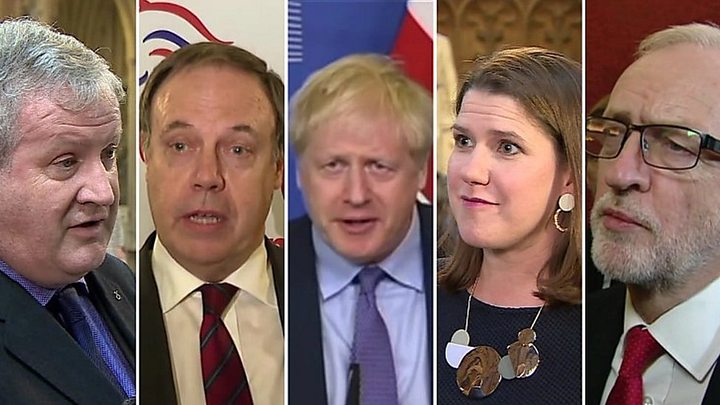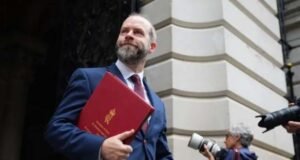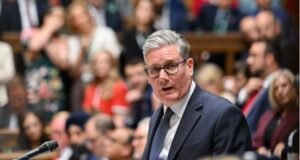
Mr Johnson has insisted he is “very confident” MPs will back his deal.
But the DUP’s opposition to his plans means he faces a battle to get the agreement through Parliament.
The PM is expected to focus his attention on Labour MPs in Leave-voting areas, a group of Tory Brexiteers, and rebels he expelled from his party.
Conservative Party chairman James Cleverly said conversations with the Democratic Unionist Party would also continue, despite their insistence they would oppose the deal.
Saturday’s showdown in the Commons is the prime minister’s last chance to get Parliament to approve a deal before the Brexit deadline of 31 October.
If MPs reject his plans, legislation passed by MPs says he must ask the EU for an extension until 31 January 2020 – something he has repeatedly insisted he would not do.
The BBC’s political editor, Laura Kuenssberg, said she understood the government would try to sidestep a delay and push for a general election if it was defeated on Saturday.
Some MPs could call for an extension even if the deal is passed, to ensure that hitches in the legislation between now and 31 October cannot lead to the UK accidentally leaving without a deal.
Hailing the “excellent” deal which between the UK and the EU which was announced at a summit of European leaders on Thursday, the PM urged MPs to “come together” to vote for his plans and “get Brexit done”.
But the DUP said it would oppose the plans over concessions made by the UK to the EU on customs checks at points of entry into Northern Ireland, among other issues.
DUP MP Sammy Wilson told BBC Radio 4’s Today programme: “I can give you an absolute assurance that we will not be voting for the deal.”
He said the party would oppose the deal as a bloc and would not abstain, adding that Mr Johnson had been “forced into this deal” because the EU knows he is “vulnerable in Parliament”.
Opposition parties also confirmed they would reject the deal and instruct their MPs to vote against it.
As a result, the prime minister is expected to focus his attention on three groups:
Tory Brexiteers who have not yet backed a deal and repeatedly voted against former PM Theresa May’s withdrawal agreement
Twenty-three former Tory MPs who now sit as independents, including 21 Mr Johnson kicked out of the party last month after they rebelled against him in a bid to prevent a no-deal Brexit
And a group of Labour MPs who have expressed a desire to back a deal but are concerned about protection for workers and the environment
Oliver Letwin, one of the former Tories, told the Today programme he would support the deal, and estimated that 17 or 18 of the 21 rebels would follow suit.
But he hopes to force Boris Johnson to request an extension anyway, saying he did not want to “let the government off the hook” and allow it to bypass a law aimed at preventing no-deal.
Under the law as it stands, the government could have its deal approved in principle on Saturday and then leave with no deal anyway if it fails to pass implementing legislation by the 31 October deadline.
What is in the new Brexit deal?
DUP ‘unable to vote’ for PM’s new Brexit deal
One of the Labour MPs who have said they want to back a deal, Ronnie Campbell, told the BBC’s Newsnight he was minded to defy his party and vote with Mr Johnson.
“I think this country’s just fed up with the way Parliament’s run this for the last three years,” said the Labour veteran, who is standing down at the next election.
BBC political correspondent Nick Eardley said he understood Labour MPs who rebelled by backing Mr Johnson would not lose the whip, that is, not be effectively expelled from the party.
On Thursday, Mr Johnson said he was “very confident” MPs would want to vote for his agreement when they studied it.
Speaking about the arithmetic of getting the deal through Parliament, Conservative Party chairman James Cleverly told the BBC: “If everybody sticks to their word and votes the way they said they would if a deal was presented then we’ll have the numbers to get through.”
 Weekly Bangla Mirror | Bangla Mirror, Bangladeshi news in UK, bangla mirror news
Weekly Bangla Mirror | Bangla Mirror, Bangladeshi news in UK, bangla mirror news







